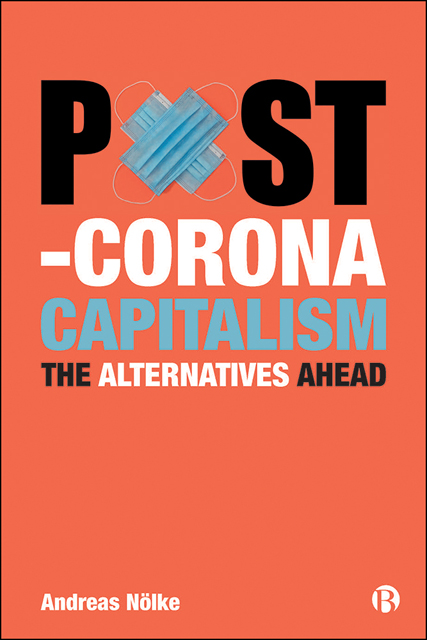Book contents
- Frontmatter
- Dedication
- Contents
- List of Abbreviations
- Acknowledgements
- Preface
- 1 Introduction: Confronting a Multidimensional Crisis of Capitalism
- Part I Capitalism and Society
- Part II Domestic Institutions of Capitalism on the Demand Side
- Part III Domestic Institutions of Capitalism on the Supply Side
- Part IV The International Institutions of Capitalism
- Part V Anthropocene Capitalism
- Part VI Geo-economic Shifts in Global Capitalism
- Part VII Ideologies in Contemporary Capitalism
- References
- Index
26 - Agriculture: Global Supply Chains or Local Community Support?
Published online by Cambridge University Press: 13 October 2022
- Frontmatter
- Dedication
- Contents
- List of Abbreviations
- Acknowledgements
- Preface
- 1 Introduction: Confronting a Multidimensional Crisis of Capitalism
- Part I Capitalism and Society
- Part II Domestic Institutions of Capitalism on the Demand Side
- Part III Domestic Institutions of Capitalism on the Supply Side
- Part IV The International Institutions of Capitalism
- Part V Anthropocene Capitalism
- Part VI Geo-economic Shifts in Global Capitalism
- Part VII Ideologies in Contemporary Capitalism
- References
- Index
Summary
The likely origin of the coronavirus in a Chinese wet market, but also food shortages during the crisis have led to additional attention to the global food system. Many observers criticize the latter severely, because its expansion has led to a loss in biological diversity and has brought people too close to wildlife, thereby increasing the risk for zoonotic diseases in the future. Were the developments in Wuhan an isolated accident or is the systemic criticism of the international agricultural and food system warranted? At stake is not only the increased risk of zoonotic diseases, but also widespread hunger. According to the World Food Programme, the pandemic has increased the number of people with acute hunger by more than 80 per cent, towards 270 million people (WFP, 2020: 6). Should we take this observation as an indication to focus agriculture upon local community support or should we further its integration into global supply chains?
Political Economy scholarship on agriculture and the food system
Political economy scholarship can assist us in dealing with these questions by highlighting a number of structural features of contemporary agriculture and food production. Put very simply, scholars working on the ‘international political economy of food and hunger’ (Balaam and Dillman, 2014: 460) distinguish between transnational agribusiness and its global supply chains on the one hand and local agricultural production for local needs on the other. Which of the two fundamental alternatives gains support through the coronavirus pandemic?
Issues of agriculture and food are not only important to Political Economy because of continued hunger crises and the role of agricultural exports as major problem for the conclusion of global trade negotiations, but also because the economic features of food production changed very dynamically during the last decades. During the last 70 years, we have seen a continuous process of moving global agriculture towards ‘the rise of a global food system based on principles of industrial production, specialization and global trade that is progressively taking place via complex global food supply chains dominated by large private sector corporations’ (Clapp and Moseley, 2020: 1395). Jennifer Clapp and William Moseley (2020: 1395–9) distinguish between three main phases in the development of the global food system, all driven by the attempt to prevent food crisis via increased efficiency
- Type
- Chapter
- Information
- Post-Corona CapitalismThe Alternatives Ahead, pp. 161 - 166Publisher: Bristol University PressPrint publication year: 2022



